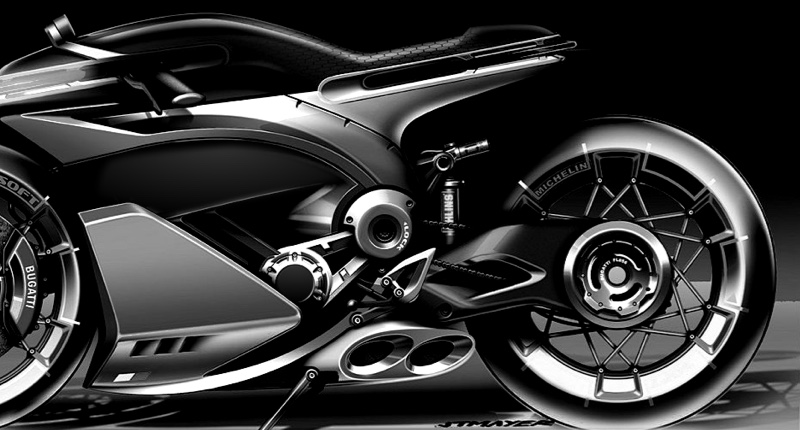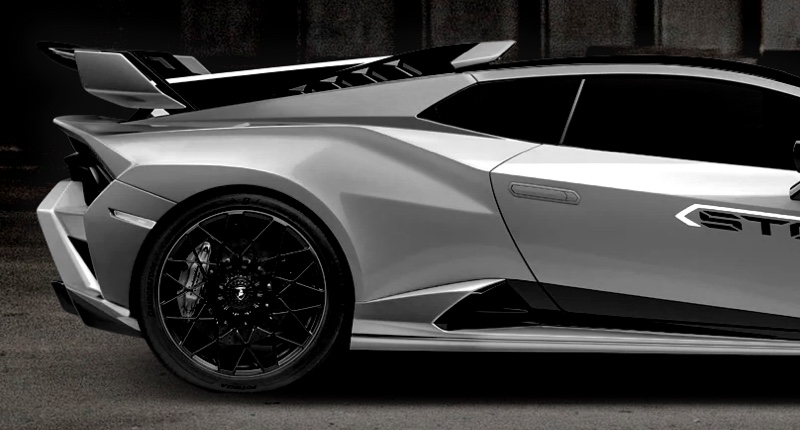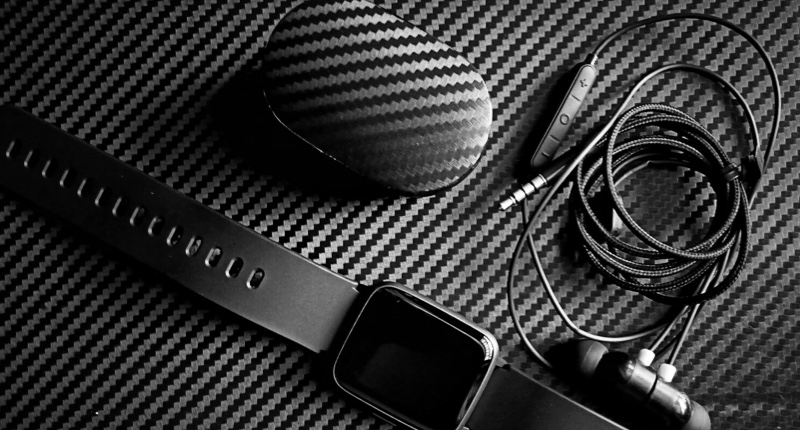is carbon fiber stronger than aluminum | Supreem Carbon Expert Guide
- Is Carbon Fiber Stronger Than Aluminum? A Deep Dive for Procurement Professionals
- Beyond Simple Strength: Understanding Tensile Strength and Stiffness
- The Weight Advantage: How Density Impacts Performance
- Durability and Fatigue: Which Material Lasts Longer?
- Cost-Benefit Analysis: Initial Investment vs. Long-Term Value
- Application Spotlight: When to Choose Carbon Fiber Over Aluminum
- Supreem Carbon: Your Partner in Advanced Carbon Fiber Solutions
Is Carbon Fiber Stronger Than Aluminum? A Deep Dive for Procurement Professionals
For industries ranging from aerospace and automotive to sporting goods and industrial machinery, the choice between carbon fiber and aluminum is a perennial debate. While often simplified to a binary 'stronger or weaker' question, the reality is far more complex, involving a multitude of mechanical properties, application requirements, and cost considerations. For procurement professionals, a thorough understanding is paramount to making optimal material selections.
Beyond Simple Strength: Understanding Tensile Strength and Stiffness
When people ask if carbon fiber is 'stronger' than aluminum, they often implicitly refer to tensile strength—the material's resistance to breaking under tension. Here, carbon fiber typically holds a significant edge.
- Carbon Fiber: High-strength (HS) carbon fibers exhibit tensile strengths ranging from 3.5 GPa (500 ksi), while ultra-high-modulus (UHM) fibers can reach up to 7 GPa (1000 ksi). When woven into a composite, the strength depends on fiber volume, matrix material, and weave pattern, but the base fibers are exceptionally strong.
- Aluminum Alloys: Common high-strength aluminum alloys, such as 7075-T6, typically have tensile strengths in the range of 500-570 MPa (70-80 ksi). While strong for their weight, they are orders of magnitude lower than individual carbon fibers in terms of absolute tensile strength.
However, 'strength' also encompasses stiffness, measured by the Young's Modulus. This property indicates a material's resistance to elastic deformation under stress. In this regard, carbon fiber again surpasses aluminum significantly:
- Carbon Fiber: Young's Modulus can range from 200 GPa (30 Mpsi) for standard carbon fibers to over 700 GPa (100 Mpsi) for ultra-high-modulus fibers.
- Aluminum: Aluminum alloys have a Young's Modulus of approximately 69 GPa (10 Mpsi).
This means carbon fiber parts will deform much less under a given load than aluminum parts of the same geometry, leading to greater rigidity and precision.
The Weight Advantage: How Density Impacts Performance
One of the most compelling reasons to choose carbon fiber is its exceptional strength-to-weight ratio. This is where the material truly shines, especially in applications where weight reduction is critical.
- Carbon Fiber: The density of carbon fiber composites typically ranges from 1.5 to 1.9 g/cm³, depending on the fiber volume fraction and matrix material.
- Aluminum Alloys: Aluminum alloys have a density of approximately 2.7 g/cm³.
This significant density difference means that a carbon fiber component can achieve the same strength and stiffness as an aluminum component while being substantially lighter. For aerospace, automotive, or robotics applications, this translates directly into improved fuel efficiency, increased speed, greater payload capacity, or reduced energy consumption.
Durability and Fatigue: Which Material Lasts Longer?
When considering long-term performance, durability and fatigue resistance are crucial factors.
- Fatigue Resistance: Carbon fiber composites generally exhibit excellent fatigue resistance compared to metals, meaning they can withstand repeated loading cycles without failing. Unlike metals that often show clear yield points and plastic deformation before failure, carbon fiber composites tend to fail more suddenly once their fatigue limit is reached, making careful design critical.
- Corrosion Resistance: Carbon fiber itself is inherently corrosion-resistant, making it ideal for harsh environments. While aluminum forms a protective oxide layer, it can still be susceptible to galvanic corrosion when in contact with other metals, or specific types of corrosion in certain chemical environments.
- Impact Resistance: This is an area where aluminum can sometimes have an advantage. While very strong in tension, carbon fiber composites can be more brittle and susceptible to localized damage from sharp impacts, which can lead to delamination. Aluminum, being more ductile, may dent or deform but often retains its structural integrity better under impact.
Cost-Benefit Analysis: Initial Investment vs. Long-Term Value
Historically, the higher cost of carbon fiber has been a barrier. However, a comprehensive procurement decision must consider more than just the upfront material price.
- Initial Cost: Raw carbon fibers and the specialized manufacturing processes (e.g., autoclave curing, resin infusion, filament winding) are generally more expensive than aluminum sheets or extrusions and conventional metalworking. This often results in a higher per-part cost for carbon fiber components.
- Long-Term Value: The higher initial investment can be offset by significant long-term savings. For instance:
- Fuel Efficiency: In transportation, lighter carbon fiber components lead to reduced fuel consumption, generating substantial savings over a vehicle's lifespan.
- Performance Gains: Improved speed, acceleration, or maneuverability can translate to competitive advantages or operational efficiencies.
- Reduced Maintenance: In some applications, carbon fiber's corrosion and fatigue resistance can lead to lower maintenance requirements.
- Extended Lifespan: Better fatigue performance can result in a longer service life for components, reducing replacement costs.
Application Spotlight: When to Choose Carbon Fiber Over Aluminum
The choice between carbon fiber and aluminum boils down to the specific requirements of the application.
Choose Carbon Fiber When:
- Maximum Strength-to-Weight Ratio is Critical: Aerospace (aircraft fuselages, wings), high-performance automotive (chassis, body panels), racing bikes, drones, robotics.
- High Stiffness is Required: Precision instruments, industrial arms, satellite components, sports equipment (golf clubs, tennis rackets) where minimal flex is desired.
- Fatigue Life is a Key Concern: Components undergoing repetitive stress cycles.
- Corrosion Resistance is Essential: Marine applications, chemical processing equipment, outdoor structures.
- Thermal Expansion Needs to Be Minimized: Carbon fiber has a very low coefficient of thermal expansion.
Choose Aluminum When:
- Cost is the Primary Driver: General structural components, consumer electronics, everyday automotive parts where weight is less critical.
- Ductility and Impact Resistance are Prioritized: Components that might experience significant impacts or need to deform without catastrophic failure.
- Ease of Manufacturing/Recycling is Important: Aluminum is highly recyclable and easily formed through processes like extrusion, casting, and machining.
- Electrical Conductivity or Thermal Conductivity is Required: Aluminum is an excellent conductor of heat and electricity.
ly, the 'stronger' material is the one that best meets the comprehensive requirements of your application, balancing performance, durability, and cost-effectiveness.
For procurement professionals, partnering with a knowledgeable carbon fiber manufacturer is key. Understanding the specific grades of carbon fiber, resin systems, and manufacturing processes allows for tailored solutions that leverage the material's full potential.
Supreem Carbon: Your Partner in Advanced Carbon Fiber Solutions
At Supreem Carbon, we specialize in delivering cutting-edge carbon fiber parts tailored for industrial procurement needs. Our expertise ensures you receive components that are not only high-performing but also cost-effective over their lifecycle.
Supreem Carbon's Advantages:
- Precision Engineering: Leveraging advanced simulation and design tools to optimize strength, stiffness, and weight for your specific application.
- High-Quality Materials: Sourcing High Quality carbon fibers and resins to ensure superior mechanical properties and consistent performance.
- Advanced Manufacturing Processes: Utilizing state-of-the-art techniques like autoclave curing, RTM, and filament winding for complex geometries and superior structural integrity.
- Rigorous Quality Control: Implementing comprehensive testing protocols to guarantee every part meets stringent industry standards and your exact specifications.
- Customization and Scalability: From prototyping to high-volume production, we offer bespoke solutions designed to integrate seamlessly into your supply chain.
- Expert Consultation: Our team of material scientists and engineers provides invaluable guidance, helping you navigate the complexities of material selection and design optimization to achieve your procurement goals.

2020+ Toyota Supra A90 Carbon Fiber Engine Cover released!

Custom Xiaomi SU7 Carbon Fiber Parts – Supreem Carbon

Unveiling Carbon Fiber: 10 Surprising Truths and How It's Shaping Our Future

Carbon Fibers: What Are They and Why Are They Everywhere? (Production, Properties, and Uses Explained)

Supreem carbon new carbon fiber engine cover for GR Yaris.

Asia's Top Carbon Fiber Motorcycle Accessory Brand
For Facotry
When is Supreem carbon founded?
Our company formally established in early 2017.
For Products
Which surface could you provide for the carbon parts?
Gloss finish, matte finish, satin finish. Some color coating as the customer needs.
Which carbon fiber material you can provide in production?
1*1 plain /2*2 twill / forged carbon / honeycomb / kevlar and so on.
Supreem Carbon parts produce by 100% carbon?
Yes,all products are made from full carbon with dry carbon.
For After-sales Service
What can I do if the carbon fiber products arrived is broken?
Please give us feedback as soon as possible and we will send new one to you.

Lamborghini Urus Carbon Fiber Engine Bay Panel
Enhance the visual appearance of your Urus engine bay with these custom carbon fiber engine covers. 100% handmade and a 1:1 copy of the original part, which retains all OEM screw mounting points. Elevate your driving experience with this exquisite addition, showcasing unparalleled craftsmanship and enhancing the allure of your Urus’s engine bay.

Aprilia Tuono V4 Carbon Fiber Chain Guard

Yamaha R1/R1M Carbon Fiber Rear Fender Hugger Mudguard

Ducati Panigale 1199 1299 899 959 V2 Carbon Fiber Suspension Cover
Let’s Bring Your Carbon Fiber Ideas to Life
Have a question or inquiry about our carbon fiber composite products? Leave us a message here, and our team will get back to you promptly.
Whether you're interested in custom orders, technical specifications, or partnership opportunities, we're here to assist you.
Please fill out the fields above with your name, email address, and message.
© 2024 Supreem Carbon All Rights Reserved.





Facebook
Pinterest
LinkedIn
Instagram